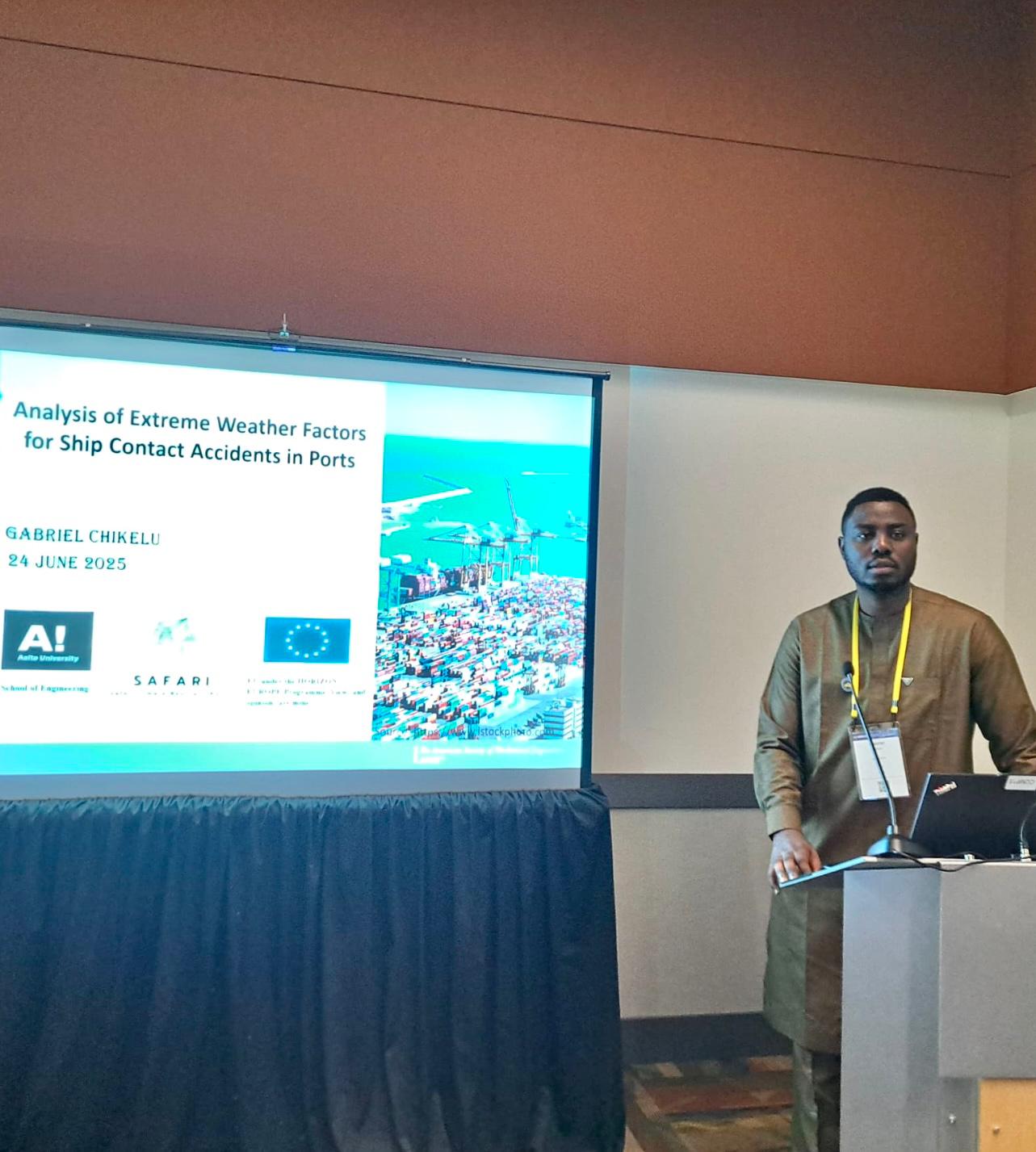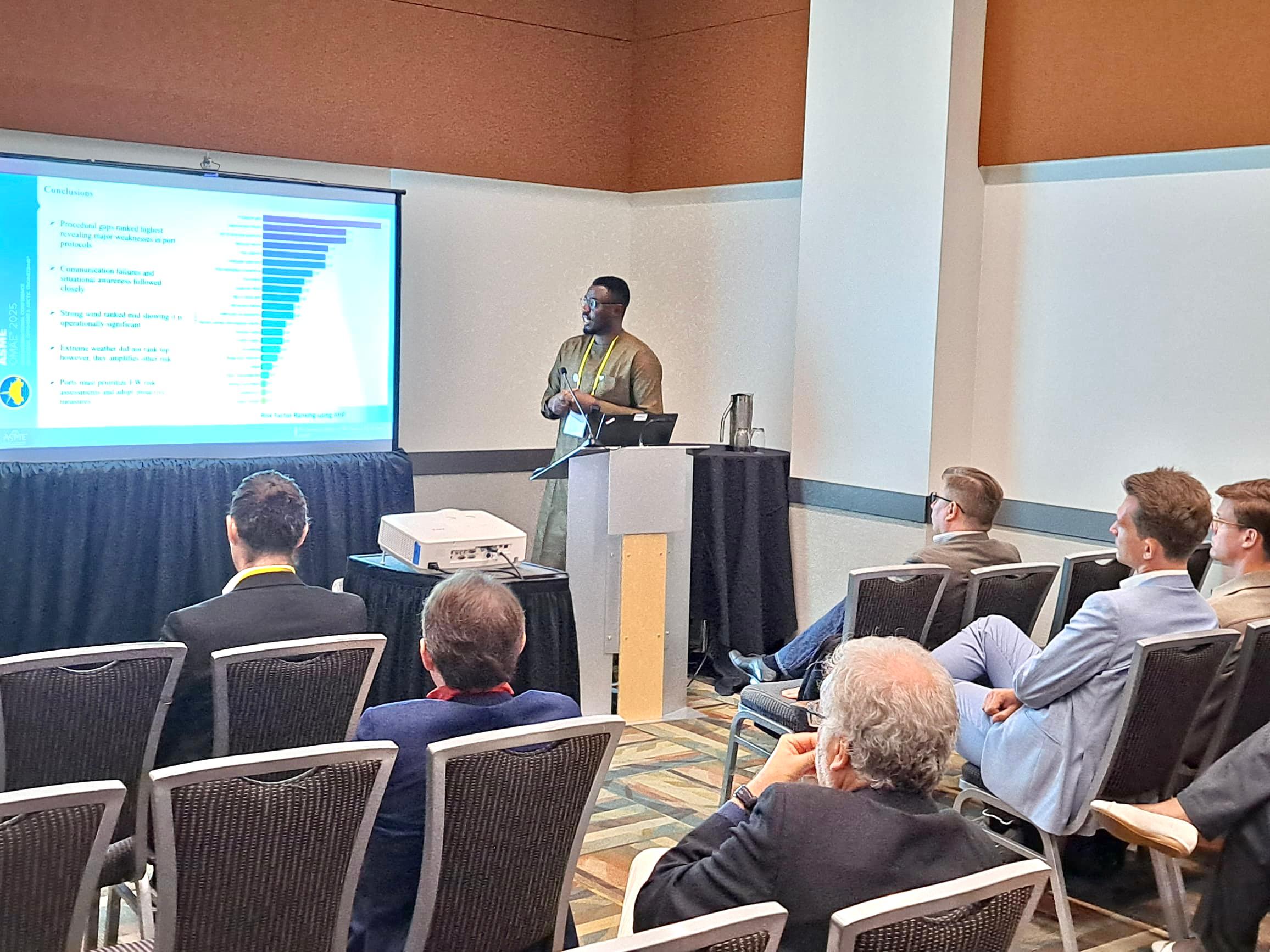Explore vacations
Choose a Continent
Choose a Destination
At the OMAE 2025 Conference in Vancouver this June, Gabriel Chikelu from Aalto University presented his new research conducted within the SAFARI Ports project, shedding light on how extreme weather events contribute to ship contact accidents in ports and critical fairways.

His paper, “Analysis of Extreme Weather Factors for Ship Contact Accidents in Ports over the Past 25 Years,” examines 72 global accident reports from 1999 to 2024, revealing the complex interplay between environmental, human, and organizational factors in maritime safety.
The study finds that while extreme weather events such as high winds and storm surges are relatively rare, they account for nearly 20% of all contact accidents in ports, highlighting their disproportionate impact on safety, operations, and the environment. In confined port environments, even moderate weather anomalies can amplify risks, complicating vessel maneuvering and increasing the likelihood of collisions, equipment damage, and logistical disruption.
Using a combined approach, Gabriel and his team identified and ranked 24 key contributing factors to contact accidents, ranging from operational errors to procedural and organizational weaknesses. Among these, procedural gaps, communication failures, and lack of situational awareness emerged as the most frequent and critical.
However, the analysis also shows that extreme weather acts as an amplifier, increasing the difficulty of decision-making and vessel handling, and often transforming minor operational issues into major incidents.
The research underscores that ports are not only logistical hubs but complex socio-technical systems, where safety depends on coordination across multiple layers: individual, supervisory, organizational, and environmental. The findings call for a paradigm shift toward proactive risk management that integrates weather forecasting, human-factor analysis, and adaptive infrastructure design.
Real-world cases such as the Pride of Kent ferry collision (2017), where high winds pushed the vessel into a jetty, and the Saga Sky incident during Storm Angus (2016), illustrate how extreme conditions can lead to cascading operational and environmental consequences, from port shutdowns to pollution and costly repairs.
Ultimately, the study advocates for enhanced risk assessment frameworks that give extreme weather the same level of attention as human and technical errors. This means investing in resilient infrastructure, advanced monitoring tools, and training for operators to manage emergencies under adverse weather.
By quantifying and prioritizing these risk factors, Gabriel’s research contributes directly to SAFARI’s mission: helping ports anticipate, withstand, and recover from extreme weather impacts through data-driven strategies.

📄 A public version of the paper will be available soon - stay tuned for details.
👏 Congratulations to Gabriel Chikelu, his supervisor, Prof. Osiris A. Valdez Banda, and all of their co-authors for this significant contribution to advancing maritime safety and resilience.